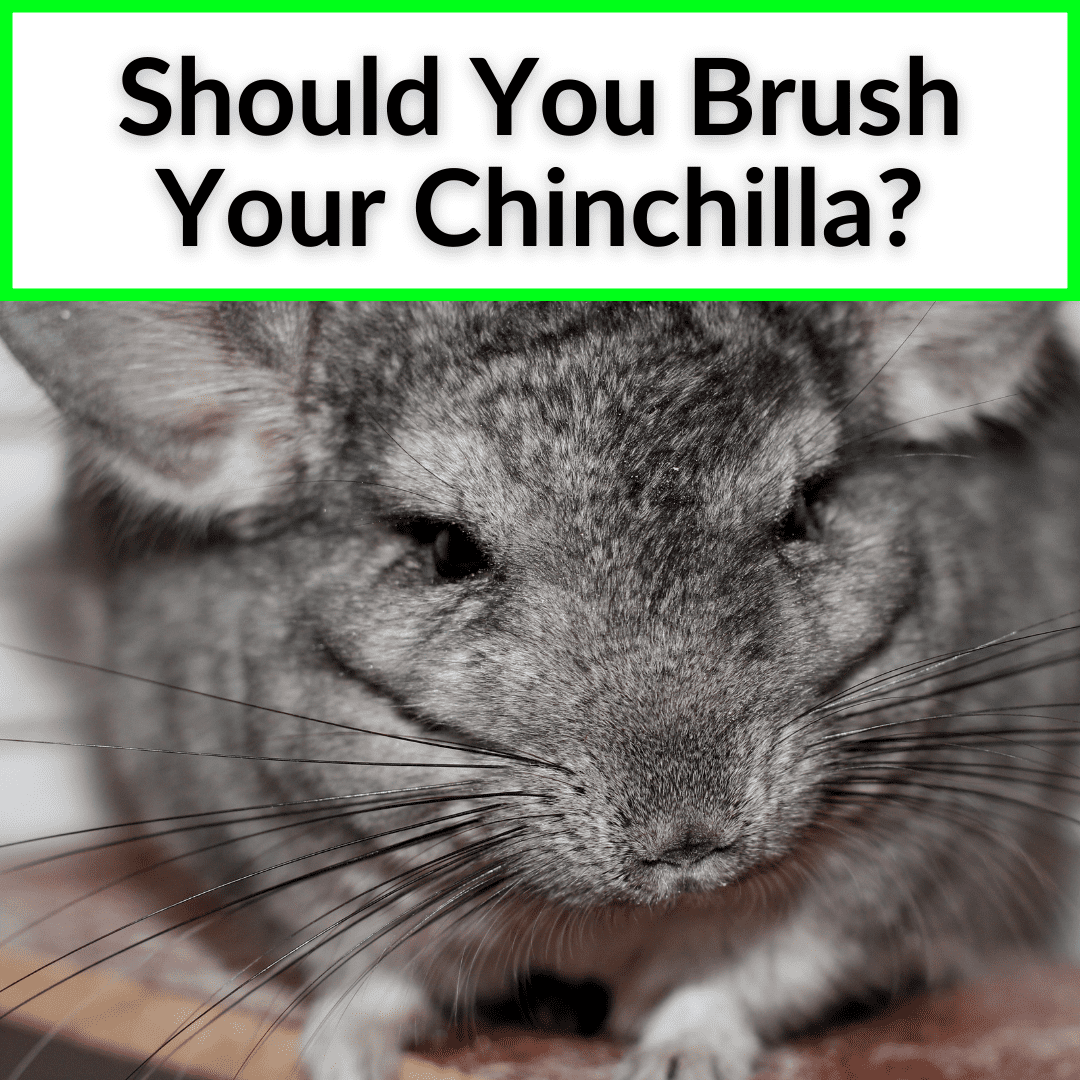
In fact, they have some of the softest fur of any animal.
It only makes sense you might want to brush it to keep it looking its best.
That’s how you keep a dog’s fur looking beautiful, after all.
But chinchillas actually groom themselves.
And they take dust baths that serve to keep their fur clean and beautiful.
Is that enough, or do you need to brush your chinchilla, too?
Keep reading to learn if you need to brush your chinchilla, or if its self grooming and dust baths are sufficient.
Contents
- 1 Should You Brush Your Chinchilla?
- 2 Best Chinchilla Brushes And Combs
- 3 Brushing A Chinchilla
- 4 Brushing Your Chinchilla: Final Thoughts
Should You Brush Your Chinchilla?
You do not need to brush a chinchilla, but you can. It helps remove dead fur from its coat and some chins love it. But they self-groom , so you can safely skip the brushing if your chin does not enjoy it.
I know that this probably doesn’t answer all of your questions on this topic. I was once in the same boat, so I know exactly what info you need. And we’re going to dive into all of it below.
I’ve also covered a lot of the questions you probably have in my guide on washing chinchillas using dust baths, so you might want to check that out too.
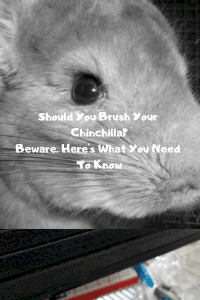
😕Adopting and caring for a new chinchilla can be intimidating and confusing. But it does not have to be.
Be sure to check out my full digital eBook “Avoiding Critical Mistakes: Ultimate Chinchilla Care eBook” for the best advice, tips, and tricks and supply recommendations to make adopting and caring for a chinchilla much more comfortable and easier to understand.
You can learn more about this eBook offer using the link directly below.
Learn more here:👉 Avoiding Critical Mistakes: Ultimate Chinchilla Care eBook Offer
Best Chinchilla Brushes And Combs
Before anything else it makes sense to show you the kind of brush you should be using. And it’s actually not a brush at all. It’s a comb.
Specifically, it is a small metal comb with minimal spacing. It helps to remove any loose fur and it’s the comb/brush I use myself. Plus, it’s incredibly inexpensive. Take a look.
Now, let’s dive into the details of actually brushing your chinchilla. And also how you can get by without brushing. Because, as mentioned, it is not necessary at all.
Brushing A Chinchilla
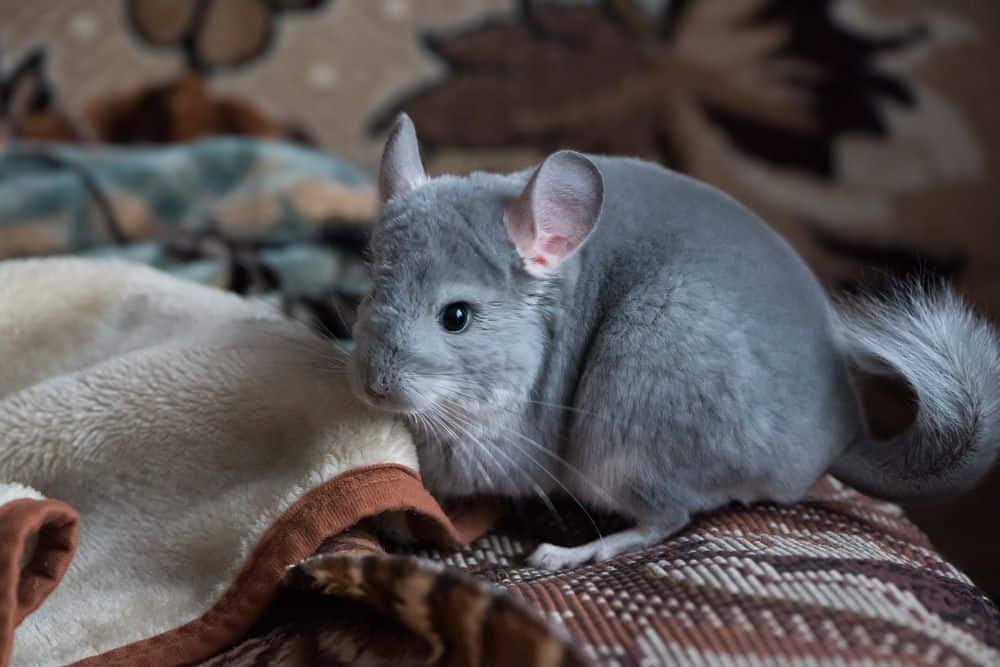
I mentioned above that brushing your chinchilla is not necessary. There is a difference between if you should brush your chinchilla and if you can brush your chinchilla.
Of course, you can brush your chinchilla. It is never a bad idea, if your pet enjoys being brushed, or you have a reason related to its fur to brush it. That is something we will cover more in-depth further down in this post.
When it comes to the question of, “should you brush your chinchilla”, I would advise you stick with my original advice, which is to brush your chinchilla if it enjoys it, or to remove dead fur.
Outside of those few reasons and a few other fur related issues that may require you to brush your chinchilla, you should be asking yourself the question in a different manner.
Do chinchillas need to be brushed?
The answer to that is “no.” Chinchillas self groom. And although brushing your chinchilla may help remove dead fur or help with other fur issues, your pet does not need to be brushed. If it does not like this form of handling, you do not need to force it.
However, it is 100% possible that your chinchilla enjoys it and has absolutely no issues with being brushed. If this is the case, there is no reason that you can’t brush your chinchilla.
The important thing to understand is that if you are going to brush your chinchilla, it should be enjoyable for your pet, or it should be for a specific purpose.
Causing stress for no reason is never the best idea as a chinchilla owner.
Not only that but when you force things your chin does not like, it is going to be much more difficult to get your chinchilla to enjoy being held or to trust you.
Chinchillas Self-Groom And Take Dust Baths
Chinchillas perform self-grooming, which nearly takes care of everything that brushing your chinchilla would help with.
In addition, the grease and oil produced on a chinchilla’s fur and body are handled when they take their dust baths. If you need information on how to provide your chinchilla a dust bath, you can view my post here.
The dust bath is 100% adequate for keeping chinchilla fur in perfect order.
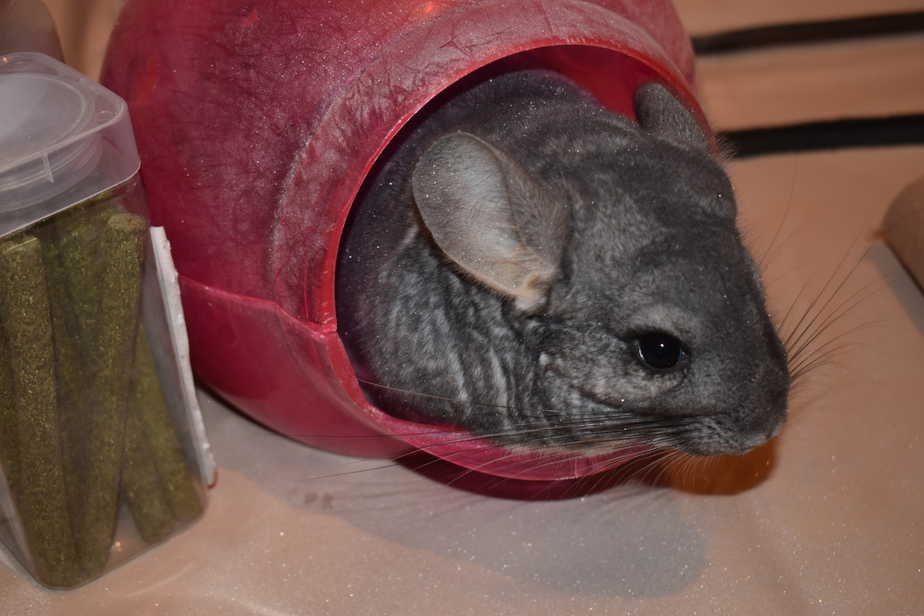
In addition, chinchillas are very friendly animals and social but they don’t necessarily like being handled in this fashion. Again, that doesn’t mean they never will enjoy being brushed and that you can’t brush your chinchilla.
One recommendation I have for beginners is to simply start with my guide that discusses how to get your chinchilla to enjoy being held and handled. You can see that here.
That’s a much better approach than going straight for brushing ,before your chinchilla is 100% comfortable with you. Gently handling a chinchilla is the way to go.
Brushing will either be perfectly fine with your chinchilla or it may be at the bottom of its list of favorite activities.
My 5-year-old female chinchilla is right in the middle. She has her days. Somedays she loves to be brushed and some days she simply wants nothing to do with it.
You will simply need to learn your chinchilla’s personality traits and characteristics to get a good gauge on this. No worries, beginning to learn this side of your chinchilla is part of learning how to take care of a chinchilla in general.
A gentle chin scratch and head rub may make your chinchilla plenty happy. However, perhaps you need to bust out the brush to put your chinchilla in that ultimate state of relaxation.
If You Do Brush Your Chinchilla
If you do plan on brushing your chinchilla, here are two simple rules to follow:
- Rule #1: Always wait a few days after a dust bath to brush or comb your chinchilla. This ensures that oils and any other dander have had time to settle.
- Rule #2: Use a metal comb designed for small rodents like chinchillas (like the one linked to above) to simply remove loose hair or any clumps in your chinchilla’s coat.
But if you are primarily concerned with maintaining the hygiene of your chinchilla’s fur, I also want to touch on why a brush is not necessary. I’ll show you how to maintain your chinchilla hygiene and health without ever needing to use a brush.
Ideal Temperatures Help Keep Chinchilla Fur In Check
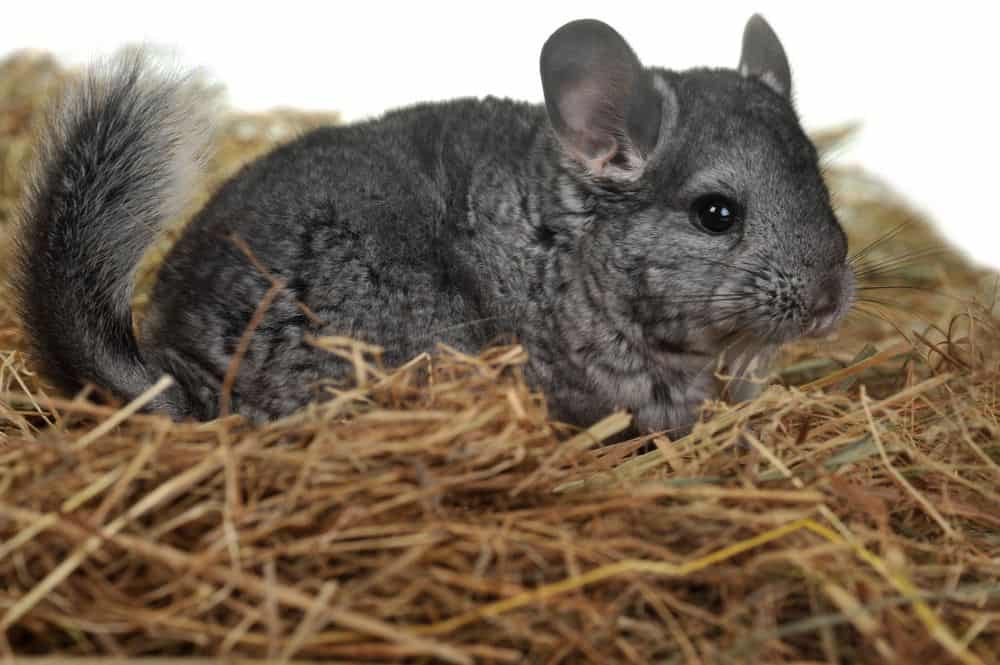
Again, let’s re-emphasize. Can you brush a chinchilla?
Yes, you can brush a chinchilla.
However, other factors can be just as beneficial for your chinchilla’s fur. One thing to keep in mind with ensuring your chinchilla’s fur stays healthy and plentiful is to monitor the seasons and the climates.
In the heat of a humid summer, you may want to step the dust bathes up a notch to make sure your chinchilla’s fur and skin is getting adequate nutrients and oils.
But in the winter when the air is drier, you don’t need nearly as many dust baths for your chinchilla’s fur to be perfectly fine and your chinchilla to be perfectly healthy.
Proper temperatures are always important to prevent overheating. They are also important in ensuring that your chinchilla keeps that beautiful coat of fur. Not to mention, it is obviously going to help avoid other issues such as heat stroke.
When You Should Brush Your Chinchilla
There may come a time when you do need to brush your chinchilla. You still don’t really have to (I mean, they don’t get brushed in the wild after all), but in these situations we’re talking about now, it is best to go ahead and brush your pet.
We’re talking about when the fur is bunched, has fur mats, or is overly greasy.
If that is the case, use the comb I mentioned above (or one like it). Take it slow to ensure stress levels stay in check.
I think we all know that chinchillas get scared easily. Just be sure to respect this and show some compassion and love towards your chinchilla during the process.
Never Brush Your Chinchilla In The First Days Home
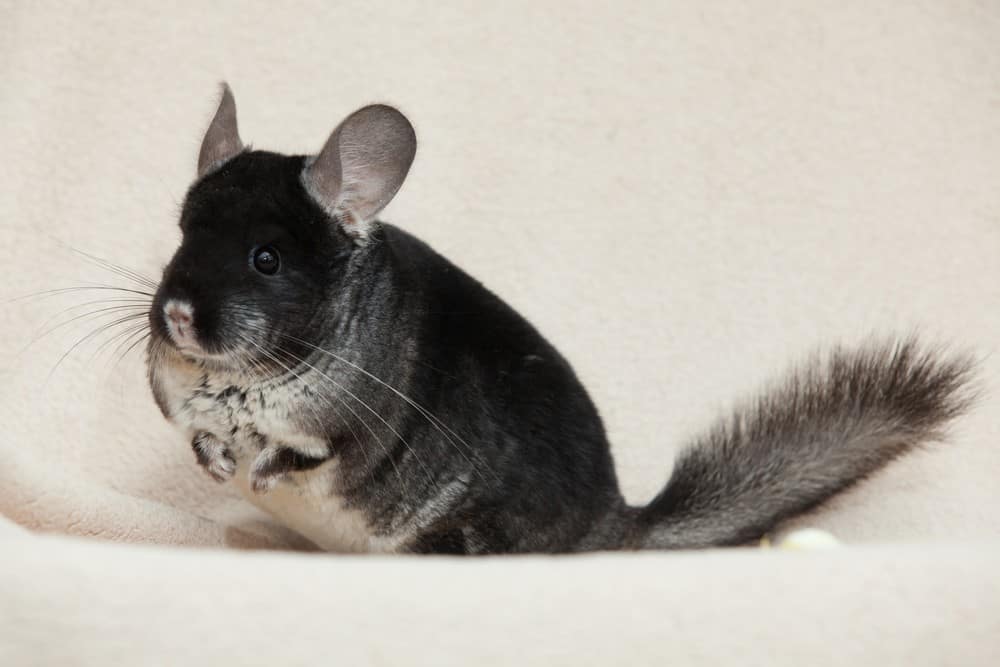
We strongly (100%, in fact)n advise against brushing and combing your chinchilla during its first few weeks in your home.
During this time, your chinchilla should be doing nothing except staying in the cage and adapting to its new environment by learning the smells, noises, and sounds of your home, including especially the sound of your voice.
My chinchilla remained inside of her nest box nearly the entire time during these initial days and weeks.
Don’t worry, chinchillas do adapt quickly. But they are going to be very scared and not know what’s going on early in the process.
Attempting to brush or comb a chinchilla in these first few weeks could lead to enough fear to cause your chinchilla to overheat. It may even lead to your chinchilla biting you.
If you have never been bitten by a chinchilla, trust me. It doesn’t feel good.
Luckily, a chinchilla biting is rare and you would really need to push your luck to reach this point. I’ve actually only been bitten once and it was more of an accident than a purposeful bite.
Other Situations Where Brushing Is A Good Idea
Below, I wanted to list out some other problems that chinchillas can often have in relation to their fur and that may warrant you busting out the brush.
You Can Brush Your Chinchilla Simply Because It Enjoys It
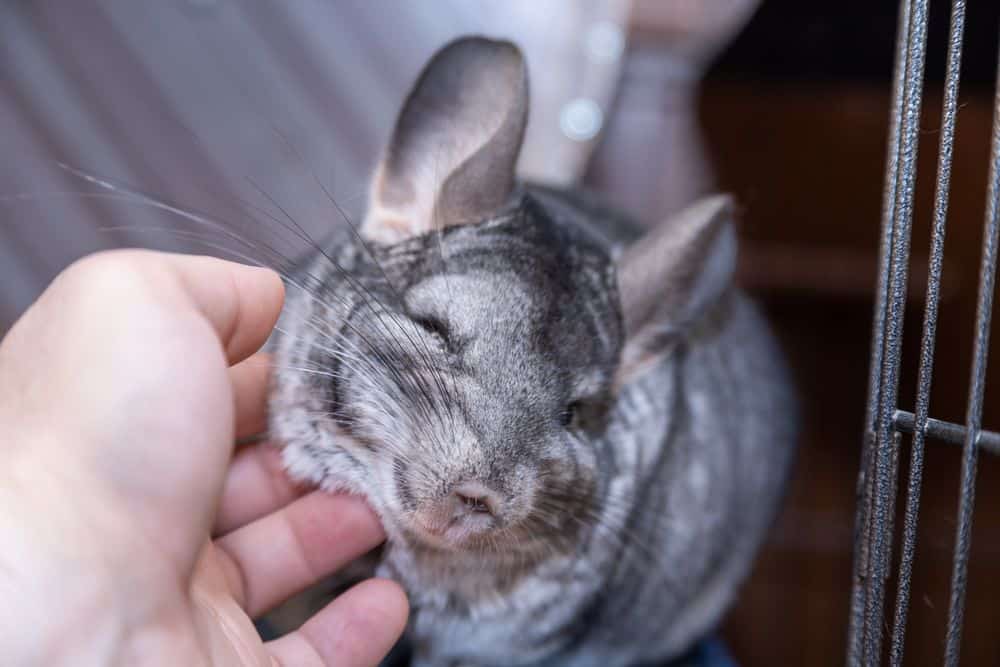
We have touched on this some already, but do not hesitate to brush or comb your chinchilla if it is something that it enjoys.
Ultimately, this is going to help increase the bond and trust between you, and your chinchilla will relax and be in a great mood while being brushed.
If they like it, I have no problem with chinchillas being brushed as often as you want.
Excessive Shedding
If your chinchilla is shedding excessively, it’s most likely due to anxiety, fear, or stress. Stress can cause shedding to activate a bit more than normal in some situations with chinchillas.
This is probably most common when you first bring your chinchilla home. This is because of the new environment. To put it simply, your chinchilla is terrified during these first few days.
This still does not mean you should comb your chinchilla. At least not yet. Remember what we said above.
Don’t worry, you have nearly two decades to brush and comb your chinchilla as much as you want. Let it adjust and get used to you and everything around it first.
Speak to your chinchilla softly and try not to make overly loud sounds that could scare your pet even more.
Doing so may spark your chinchilla to make some sounds of its own to let you know it is not ready for this interacting or brushing. This may include barking which is common with a scared or agitated chinchilla.
Allowing your chinchilla the space it needs in the beginning is imperative. This should help it get more used to the environment and begin to feel more comfortable.
Weak Or Matted Fur
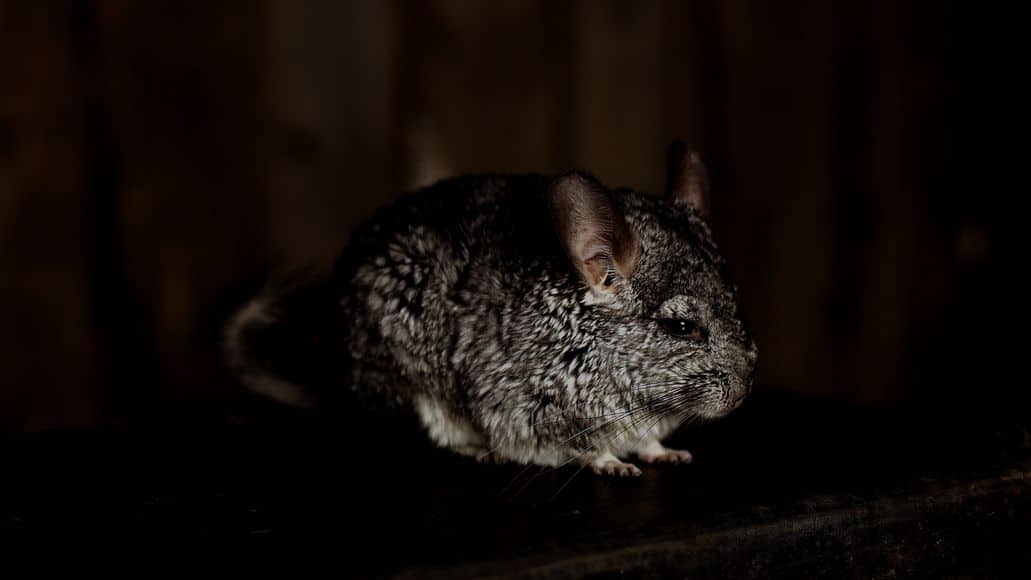
This can also be caused by several factors. Again stress and fear is a possible cause. In addition, this can indicate a diet problem, for example that your chinchilla is getting too much protein.
If this is the case, you still do not need to brush your chinchilla.
You may just need to adjust its diet and try to remove some of the protein from the mix to see if the problem continues.
However, if the warm-up period discussed previously is over and your chinchilla enjoys being brushed or combed, feel free.
It won’t cause any harm and your chinchilla will likely love it and relax during the process.
Overly Greasy Fur
If your chinchilla has overly greasy fur, you can usually fix the problem by allowing your chinchilla to take more dust baths.
The dust baths are what remove the grease and oils from the fur. Get your chinchilla out for more dust baths or allow your chinchilla to take more dust baths inside the cage.
If you are just getting home with your chinchilla I recommend allowing the chinchilla to take the dust bath inside the cage. At least until you have formed a bond and your chinchilla recognizes you as the owner.
This can help eliminate some fear and help your chinchilla to become more comfortable with the environment. Once you have exercised these steps, feel free to use the brush or comb as you please.
Bald Spots On Your Chinchilla
If your chinchilla has bald spots, this is most likely caused by fur slips, which also result from and stress/fear.
One possible cause of this is having two chinchillas together in the same cage. They may be roughhousing more than you think when you aren’t watching.
Chinchillas like to play but they are known to take it to a new level in some situations.
You have to be careful that one chinchilla isn’t becoming the victim of bites and purposely slipping its fur out of fear or to escape the other chinchilla.
You see, this is a natural behavior for chinchillas. Chinchillas will naturally slip fur on purpose to escape enemies in the wild.
In the wild, this helps to escape a grab by another animal’s mouth or to blind the predator that’s chasing closely behind them.
I think this is an awesome defense mechanism, but you should never have this happening in your home with your chinchilla.
Chinchilla Fur That Is Clumped
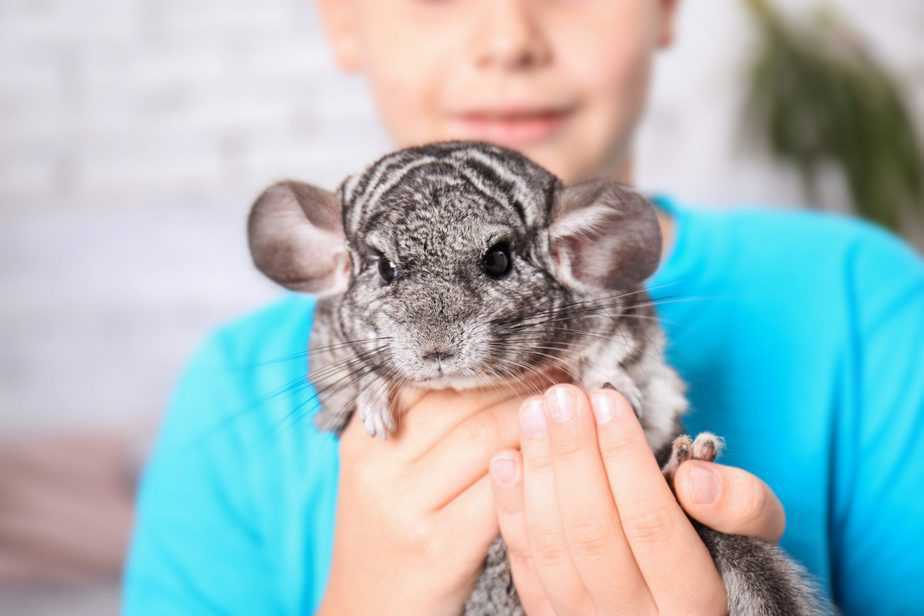
This is another possible fur problem that a chinchilla can have. It usually results from very high humidity. In these situations, as we discussed previously, you can’t increase dust baths to solve the problem.
Something such as a dehumidifier could help greatly, but don’t overdo the dust baths. It’s not necessary and will most likely only cause more stress or more hair to fall out during the process.
Full Blown Fur Slip
I already mentioned what this usually means, and this is the most common problem with chinchilla fur, but it’s also the problem that indicates the most fear in your chinchilla’s mind.
Chinchillas will only do this if they feel they are in danger.
Whatever the environment is for your chinchilla that’s causing this, you need to change it and make sure that you make your pet more comfortable.
This will help to avoid more fur coming off or your chinchilla overheating due to stress, fear, and anxiety.
Brushing Your Chinchilla: Final Thoughts
Chinchillas do not need to be brushed, but you can brush your chinchilla. In fact, you should brush your chinchilla if it enjoys it.
As mentioned previously, some chinchillas love being brushed and some do not enjoy being brushed at all.
Keeping your chinchilla calm, happy, and feeling safe is priority number one.
Don’t worry about brushing your chinchilla, unless it is necessary or it enjoys it. You can rely on your pet’s self-grooming capabilities and dust-baths to keep it clean.
Chili and I wish you the best of luck with your new chinchilla and brushing it for the first time.
Share your thoughts on brushing your chinchilla.
What’re your experiences with brushing chinchillas?
Do you have any stories you can share about how they reacted or what fur problems you have encountered as a chinchilla owner that required you to brush or comb your chinchilla?
Be sure to share your thoughts, stories, and concerns by dropping a comment below.
As always, Chili and I appreciate you stopping by and reading. Thanks again and we will see you next time!

Helen says
I use a brush rather than comb (it has a square shaped head with metal “bristles”. My chinch loves being brushed 🙂 she sits on my lap and nearly falls asleep.
We have a comb aswell for knots or matts, she doesn’t like that so much lol.